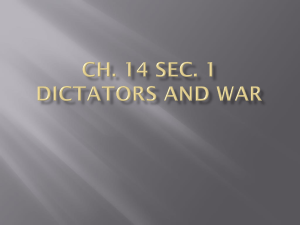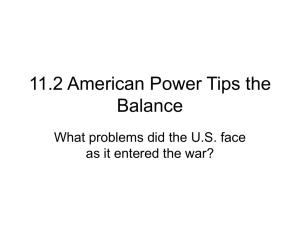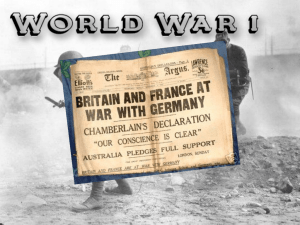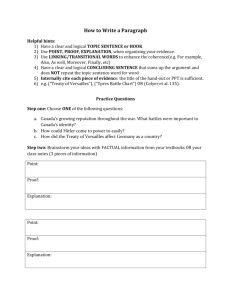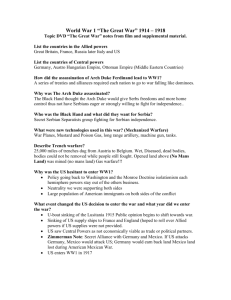File
advertisement
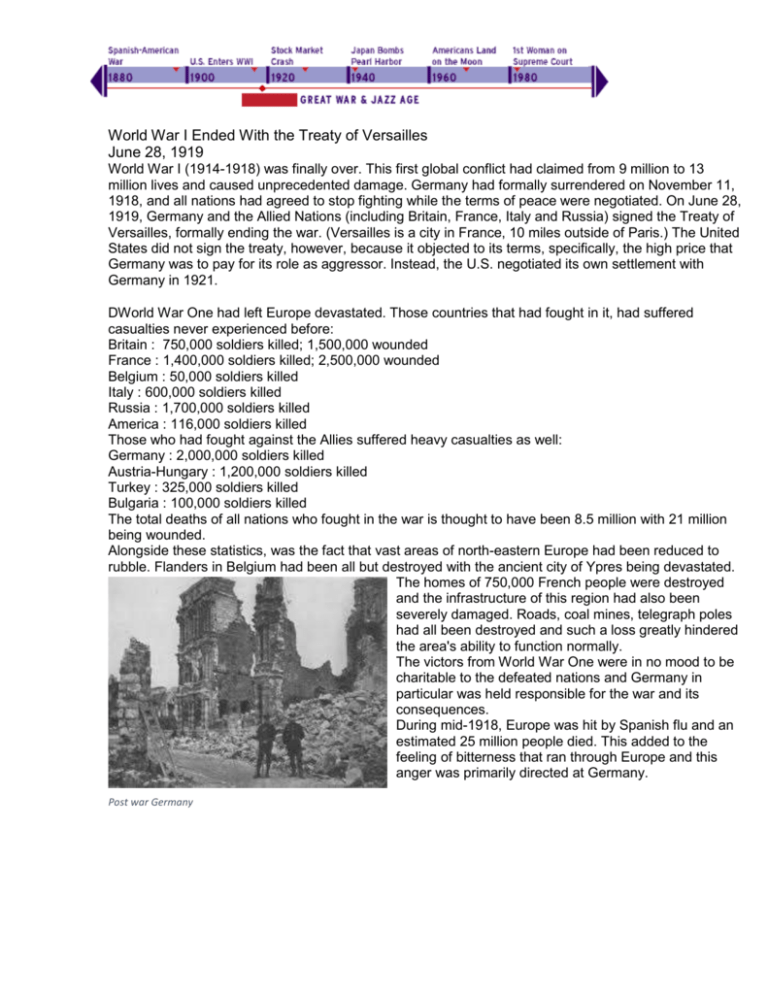
World War I Ended With the Treaty of Versailles June 28, 1919 World War I (1914-1918) was finally over. This first global conflict had claimed from 9 million to 13 million lives and caused unprecedented damage. Germany had formally surrendered on November 11, 1918, and all nations had agreed to stop fighting while the terms of peace were negotiated. On June 28, 1919, Germany and the Allied Nations (including Britain, France, Italy and Russia) signed the Treaty of Versailles, formally ending the war. (Versailles is a city in France, 10 miles outside of Paris.) The United States did not sign the treaty, however, because it objected to its terms, specifically, the high price that Germany was to pay for its role as aggressor. Instead, the U.S. negotiated its own settlement with Germany in 1921. DWorld War One had left Europe devastated. Those countries that had fought in it, had suffered casualties never experienced before: Britain : 750,000 soldiers killed; 1,500,000 wounded France : 1,400,000 soldiers killed; 2,500,000 wounded Belgium : 50,000 soldiers killed Italy : 600,000 soldiers killed Russia : 1,700,000 soldiers killed America : 116,000 soldiers killed Those who had fought against the Allies suffered heavy casualties as well: Germany : 2,000,000 soldiers killed Austria-Hungary : 1,200,000 soldiers killed Turkey : 325,000 soldiers killed Bulgaria : 100,000 soldiers killed The total deaths of all nations who fought in the war is thought to have been 8.5 million with 21 million being wounded. Alongside these statistics, was the fact that vast areas of north-eastern Europe had been reduced to rubble. Flanders in Belgium had been all but destroyed with the ancient city of Ypres being devastated. The homes of 750,000 French people were destroyed and the infrastructure of this region had also been severely damaged. Roads, coal mines, telegraph poles had all been destroyed and such a loss greatly hindered the area's ability to function normally. The victors from World War One were in no mood to be charitable to the defeated nations and Germany in particular was held responsible for the war and its consequences. During mid-1918, Europe was hit by Spanish flu and an estimated 25 million people died. This added to the feeling of bitterness that ran through Europe and this anger was primarily directed at Germany. Post war Germany The Treaty of Versailles imposed very rigid restrictions against Germany, including limiting its army to 100,000 members. President Wilson, who opposed the treaty, had developed his own form of reconciliation, called the "Fourteen Points." The Points included a provision for a League of Nations to prevent "the crime of war." Wilson also wanted all terms of settlement to be openly negotiated. But the actual terms of the treaty included secret arrangements for distribution of conquered German territories among the Allied Nations. Many historians believe these terms eventually led to World War II. The treaty had the effect of humiliating the German nation before the world. This would lead to a passionate desire in many Germans, including Adolf Hitler, to see their nation throw off the "shackles" of the treaty and once again take its place in the world - the "rebirth" of Germany through a strong nationalist government. In years to come, Hitler would speak out endlessly against the treaty and gain much support. In addition, he would rail against the 'November Criminals' and 'Jewish Marxists.' In the summer of 1919, Adolf Hitler was still in the army and was stationed in Munich where he had become an informer. Corporal Hitler had named soldiers in his barracks that supported the Marxist uprisings in Munich, resulting in their arrest and executions. Hitler then became one of many undercover agents in the German Army weeding out Marxist influence within the ranks and investigating subversive political organizations. Figure 1 Children using stacks of money as block.
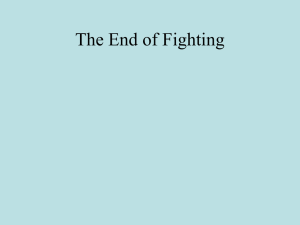
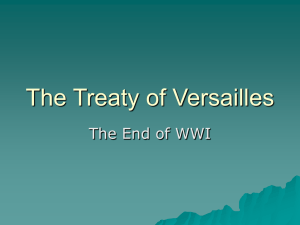

![vietnam[1].](http://s2.studylib.net/store/data/005329784_1-42b2e9fc4f7c73463c31fd4de82c4fa3-300x300.png)
